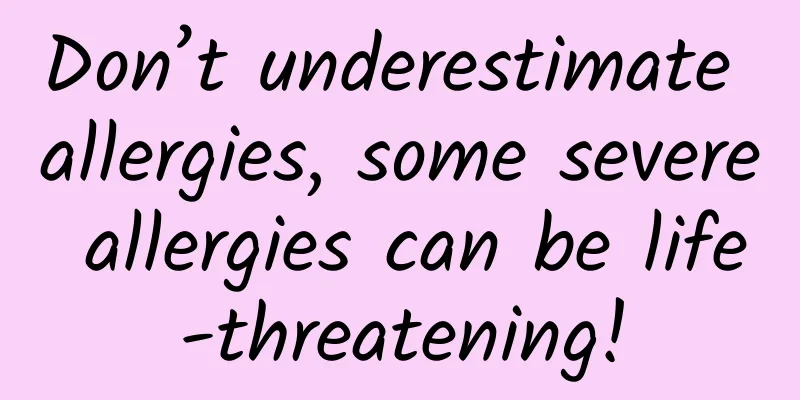Get rid of the nutritional misunderstandings of cancer patients and use scientific diet to help recovery

|
Author: Duan Yiqian, deputy chief physician of traditional Chinese medicine at Nantong Third People's Hospital Reviewer: Gu Xiaoxia, Chief TCM Physician of Nantong Traditional Chinese Medicine Hospital, Standing Committee Member of the Oncology Committee of Jiangsu Association of Traditional Chinese Medicine, Honorary Chairman of the Oncology Traditional Medicine Committee of Nantong Anti-Cancer Association Nutritional support plays a vital role in the treatment and recovery of cancer. However, many cancer patients and their families often fall into some misunderstandings when facing nutritional problems, which may not only affect the treatment effect, but also hinder the patient's recovery process. This article aims to help everyone get rid of these nutritional misunderstandings and help cancer patients recover through scientific diet. ——Myth 1: Good nutrition makes tumors grow faster Nutritional deficiency can cause tumor cells to plunder a large amount of nutrients from normal tissue cells, leading to decreased immune function, increased incidence of infection, reduced sensitivity to tumor treatment, and easily leading to adverse reactions related to chemotherapy, radiotherapy, immunotherapy, molecular targeted therapy, etc. These adverse reactions may further aggravate malnutrition, forming a vicious cycle, interrupting the treatment process, increasing hospitalization costs, and seriously affecting the patient's quality of life. It is an important risk factor for disease progression and increased mortality. Reasonable and effective nutritional support will not change the characteristics of tumor cell proliferation, nor increase the tumor recurrence or metastasis rate, nor reduce the survival rate. On the contrary, it can significantly improve the immune status of tumor patients, improve the patient's treatment rate, reduce the mortality rate, reduce the incidence of complications, effectively improve the patient's tolerance to anti-tumor treatment, and even enable some patients to regain the opportunity to receive anti-tumor treatment and prolong their survival. Figure 1 Copyright image, no permission to reprint ——Myth 2: Cancer patients cannot eat “irritating foods” Foods rich in high protein, such as shrimp, crab and other seafood, beef, mutton, chicken, etc., and irritating foods such as onions, peppers, ginger, garlic, etc., are usually considered "irritating foods". This may be because the protein in the above foods may cause allergic reactions or gastrointestinal symptoms (such as irritable bowel). Figure 2 Copyright image, no permission to reprint Whether cancer patients can eat the above-mentioned "irritants" depends on their own nutritional status and individual differences. For malnourished patients, protein needs to be increased in the diet, but in moderation; if the patient is allergic to the protein in these "irritants", they should avoid eating these foods. Deep-sea fish are rich in ω-3 fatty acids (polyunsaturated long-chain fatty acids), which have the effects of regulating estrogen, anti-inflammatory, antioxidant and anti-cancer. However, due to environmental pollution, the average concentration of heavy metals in marine fish may be high, so they should be used with caution. For cancer patients with low white blood cell count after chemotherapy, they can eat some black fish, eel, quail, beef, mutton, beef bone marrow, peanuts, milk, eggs, etc., but it is not recommended to consume large amounts of pig trotter soup, five-red soup, etc. ——Misunderstandings about nutrition for certain specific tumor patients ※Breast cancer patients cannot eat soy products, bee products and chicken. Asian women with a high level of soy product intake have a significantly lower incidence of breast cancer than those in developed countries in Europe and America. This may be related to the fact that soybeans are rich in phytoestrogens. The most important active substance in soybeans is soy isoflavones, which have a two-way regulatory effect: when the estrogen level in the body is low, it can supplement estrogen; when the estrogen level in the body is high, it binds to the estrogen receptor and antagonizes the estrogen. Moderate consumption of soy products not only does not affect the occurrence and development of breast cancer, but can reduce the risk of breast cancer and the progression of the disease. However, for breast cancer patients with positive estrogen receptors and progesterone receptors who are receiving tamoxifen endocrine therapy, the estrogen level is low at this time, and soy products are not recommended; at the same time, health foods extracted from soy isoflavones are not recommended. Bee products are rich in phytoestrogens, especially propolis, whose main component is flavonoids. Breast cancer is a multifactorial disease. In addition to genetics, lifestyle and other factors, it is also related to hormones (not just estrogen). For breast cancer patients receiving endocrine therapy, it is reasonable to avoid eating propolis in order to avoid unnecessary hormone interference. Regarding chicken, there is no clear research showing that eating chicken increases the estrogen content in the body. Figure 3 Copyright image, no permission to reprint ※Thyroid tumor patients cannot eat iodized salt. Follicular thyroid cancer and undifferentiated thyroid cancer may be related to abnormal iodine intake. Therefore, excessive iodine deficiency or excessive iodine supplementation should be avoided. Patients after thyroid cancer surgery should properly control iodine intake and eat a low-iodine diet. If the patient lives in an iodine-deficient area, there is no need to eat non-iodized salt. I hope that through today’s learning, we can get rid of the nutritional misunderstandings of cancer patients and use scientific diet to help cancer patients recover! |
<<: Are there always "flying bugs" in front of your eyes? Learn more about floaters
>>: Do you like pulling out gray hair too?
Recommend
Can I eat eggs if I have mastitis?
Women should not think that only diseases in the ...
Why does my period come a week early?
If the menstrual period is relatively regular, it...
The fertilized egg implants approximately after fertilization
How many days does it take for the embryo to impl...
What causes abdominal pain in girls?
Women have many medical problems due to gynecolog...
Treatment of hemangiomas in adults
For patients with hemangioma, they are very worri...
Pictures of lochia almost finished
When the lochia is about to be discharged, it wil...
I have brown discharge during my period.
When menstruation is about to come, women general...
Girls' reproductive organs pictures
Female internal genitalia: anatomical name. A hid...
Prevention and treatment of coronary heart disease
Unit: Puning Traditional Chinese Medicine Hospita...
Why do women have long menstrual periods?
Female friends should all know that the menstrual...
What's wrong with a girl having her periods twice a month?
As we all know, women have their menstruation onc...
What is the magic of "Pi La Hong" with over 10,000 likes? Clean and fat-reducing! I really recommend you to eat more...
Recently, a cold dish on a social platform has be...
How cervical cerclage is performed
The uterus is a very important organ for women. I...
【Health Lecture】Cardiopulmonary Exercise Between Breathing
In order to ensure the scientific effect of learn...









